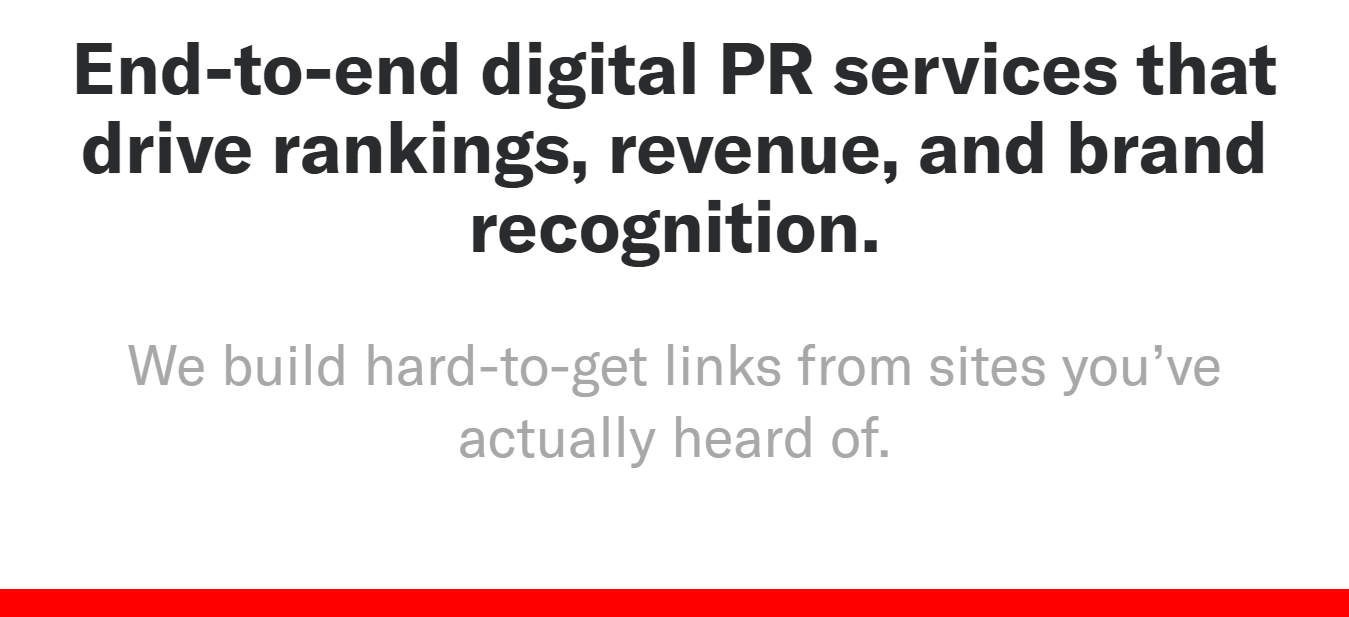Like so many pages, the services page on your website is almost an after-thought. I mean, after all, it’s website content.
How hard can that be?
Right?
How hard can it be to write a page for your website care services that generate some kind of conversion?
Yet, often when I look at service pages, I see similar mistakes over and over.
So, today, we are going to dive into three types of things you need to write your website care services page.
The art of the headline
The headline is crucial for a web page, and for some reason, people overlook its importance.
However, when it comes to blog posts, we will use generators, write headlines using formulas we find online, and often resort to clickbait.
Clickbait never works. See Andy Crestodina on the Stunning Digital Marketing Podcast.
And again on Twitter.
Clickbait = Lying https://t.co/1p6w2fDb0R
— Andy Crestodina (@crestodina) November 4, 2021
However, when it comes to a web page, we simply overlook the headline.
But it’s not just the headline, it’s the whole “above the fold” section that we like to call the Hero Section.
It’s pretty important.
So important that Copyhackers Joanna Wiebe advocates using a Unique Value Proposition for website headlines.
She’s not the only one, Peep Laja from CXL does as well.
Your value proposition has to be the first thing visitors see on your homepage, but it should also be visible at all major entry points to the site.
It’s not just for aesthetics or to placate a CEO or copywriter. Ultimately, it can improve your customer lifetime value.
These two people (Laja & Wiebe) get paid well to help people with conversions on their websites.
The point? Don’t overlook your headline and your hero section.
Your headline, or your hero section, has to do two things: communicate the value and capture interest.
Relevance will capture interest.
If the value is something that the reader is needing, he or she will be very interested.
But Unique Value Proposition is a business term and often hard to understand.
I like to use the term Value Prop or UVP and some will use Unique Selling Position.
Let’s ditch the jargon, shall we?
Some time ago, I adopted the term “desired outcome.” That’s it, and it tells you what you need to know. (source: Talia Wolf)
Finding that desired outcome, however, can be a bit tricky.
I often see web pages, especially home pages, refer to making more money, generating more leads, or something to that effect. Let’s be honest, all businesses want to make more money, generate more revenue or generate more leads.
Those are a given.
Copywriter Joel Klettke breaks down his process for writing the service page for Seige Media in this article from last year. Klettke wrestled with what it meant for a link-building company.
The result was quite remarkable.
“We build hard-to-get links from sites you’ve actually heard of.
“End-to-end link building services that drive rankings, revenue, and brand recognition.”

Immediately, a solution-aware reader understood this bold claim.
He uniquely positions his client with a major “desired outcome.”
Klettke also recognizes it really isn’t the links they want but what the links provide,
“3) Desired outcomes: What do leads really want? Hint: it’s not “links!” They want what links can do: make them visible in credible publications, boost rankings, and drive real business outcomes (leads + sales.)” Source
He touches on the pain of the hard to acquire links. He takes the reader right to the point where they will know they will get more business because they are getting important links!
How does one find the “desired outcome” of their target audience?
Well, there are videos and books written about researching for copy, but let me go over just a couple of easy tasks that can help.
First, start with frequently asked questions.
I am not talking about this for a FAQ section on your website, but questions you get when someone considers you for managing their website.
Their questions will reveal to you what hits their pain points.
For example, maybe they had a problem with their website going down before, and could not get it back up within a couple of days. If this has happened to them before, they will want to know how quickly you can restore their website.
Your leads will ask questions as you talk to them, and some will repeat themselves.
That is a good indication that it is a common pain point.
I find that many of my clients care that I am willing to be the go-between for them with hosts (I don’t host any sites) in case it is needed.
It is one less thing they have to do, and that is a small example of a pain point I solve.
Your situation may be different.

The second thing to do is to have conversations with leads and or customers.
Then ask “why?”
Ask them why they are seeking a solution like yours. Ask them to tell you a story of when things went wrong with their website.
The conversation may go something like this:
“Okay Mr. Customer, I wanted to ask you why you are seeking to use our website care plan? Tell me about a time you had a major problem with your website. What happened?”
Then, sit back and listen.
Deep down, it’s about security, knowing that their site is secure and if something happens you will be able to help them quickly so they don’t lose money.
But the words they use will be gold helping you identify what the problem is and the words they use to communicate those problems.
It just takes a conversation. Ask a few customers or leads, and be sure to give them some kind of compensation. It can be as simple as an Amazon gift card.
Benefits… Benefits… benefits

Most companies will lead their service pages with features. The better way is to lead with benefits to help them bridge the value gap.
If the customer struggles to understand the value of one of your benefits, they will not be able to visualize this.
I call this the “torque effect.”
You hear those car commercials where they talk about “torque.” I tried to sell cars for about 30 days and I still have no idea what torque is.
It’s fancy, it’s an engineering term, and I guess it is supposed to add sizzle, but mostly my eyes glaze over.
But imagine saying, “This pickup truck can easily haul your boat on the weekend, even when you have to have additional power to get on the interstate.”
It’s not that features aren’t important (they are!) but we need to lead with an analogy, a benefit, that bridges the value gap.
Therefore, extract the benefits from each of your features. Explain the benefits.
I would suggest taking at least 3-5 features and working out the benefits.
There are a couple of ways to do this which I talk about in the Website Copy Framework.
Add your social proof
Social proof is a credibility enhancer. They shouldn’t be relegated to one page on your website.
The service page is a great place to add social proof because this is a buying page.
So, add your testimonials, the ones about your web care service. Add at least three.
If you create case studies about how you helped a company with your website care, they should be on this page as well.
Use credibility enhancers that relate specifically to your web care service.
This might also be a good place to add information about your sign-up process, a process for doing your web care, and a few frequently asked questions.
This helps them find all the answers they need before making their choice.
One final thing you might do is have a way that they can reach out to you to answer questions.
Wrapping it up
As a website care consultant, the service page is one of your most important pages. On that page, you need to get your reader to take action.
Answering questions they have and showing proof of your competence will go a long way to helping them decide to your use your services. Meeting them with their desired outcome in your copy will increase your chances.
Do you have thoughts about your service page? Let us know in the MainWP Users Facebook Group.







